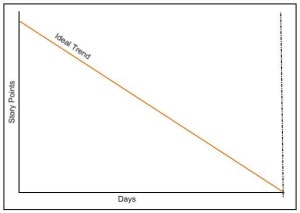NodeJS or Node.js is one of the powerful open-source and cross-platform runtime environment built on Chrome’s V8 JavaScript engine for executing JavaScript code outside of a browser. It provides an event-driven, non-blocking (asynchronous) I/O and cross-platform runtime environment for building highly scalable server-side applications using JavaScript.
What is Node.js?
As we said in the above section, NodeJS is a JavaScript-based server-side runtime environment. It is developed by Ryan Dahi in the year 2009 and v20.9 is the latest version of Node.js. Because it is cross-platform one can easily run on Windows, Linux, Unix, macOS and more.
Node.js is one of the popular choices for developing RESTful API, microservices and web application
Node Advantages
- Easy Scalability: Node JS is built upon Chrome V8’s engine powered by Google. It allows Node to provide a server-side runtime environment that compiles and executes JavaScript at lightning speeds.
- Real-time web apps: Today the web has become much more about interaction. Users want to interact with each other in real-time. Chat, gaming, constant social media updates, collaboration tools, eCommerce websites, real-time tracking apps, marketplace- each of these features requires real-time communication between users, clients, and servers across the web.
- Fast Suite: As we have discussed that Node is highly scalable and lightweight that’s why it’s a heavy favorite for microservice architectures. In a nutshell, microservice architectures mean breaking down the application into isolated and independent services.
- Easy to learn and code: No matter what language you are using for the backend application you’re gonna need JavaScript for front-end anyway so instead of spending your time learning a server-side language such as Php, Java or Ruby on Rails, you can spend all your efforts in learning JS and mastering in it.
- Data Streaming: Node comes to the rescue since it’s good at handling such an I/O process which allows users to transcode media files simultaneously while they are being uploaded. It takes less time compared to other data processing methods for processing data.
- Non Blocking Event-Drive Archtecture – Unlikly other traditional web servers that wait for one request to finish before handling another, Node.js uses an event-driven architecture and this things makes effective for handling many concurrent requests.
- Corporate Support: It’s an independent community aimed at facilitating the development of Node core tools. The foundation of Node was formed to speed up the development of Node, and it was intended to allow broad adoption of it.
Why to learn Node?
Node is famous due to the use of JavaScript across the entire stack, asynchronous programming model for handling multiple requests simultaneously, fast execution due to the V8 engine, large and active community support, scalability for real-time applications, cross-platform compatibility, and its role in enabling full-stack development. All these features make Node very fast and popular.
Well before getting deep down in the Node tutorial there is a certain requirement. So let’s understand the prerequisites for this Node tutorial.
NodeJS Prerequisites
Well, to learn Node or NodeJS there are some requirements you need. You should have a basic understanding of JavaScript.
Environment Setup for NodeJS
- Node.js Installer
- Node Package Manager
- Text Editor or IDE
Node.js First Program
- Javascript
Output
Hello World
NodeJS Frequent Asked Questions and Answer
1. How to check the version of Node.js?
To the check the version of NodeJS, open Terminal or CMD and type node -v and press Enter.
2. How to check the version of npm for Node?
Type npm -v in CMD or terminal and press Enter to check the version of npm for Node.
3. Are Node.js developers in demand?
Yes, Node.js developer are in demand because of its rich ecosystem and non blocking architecture
4. What is the difference between Node.js and React.js?
Well, most of the Node.js is used for backend for any application and React.js is used to create UI of any web application.
5. What is Node.js is used for?
A misconception among developer is that Node.js is only used for backend but, this is not a whole true. Actually, Node.js is used for both frontend and backend development.


No comments:
Post a Comment